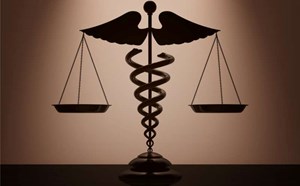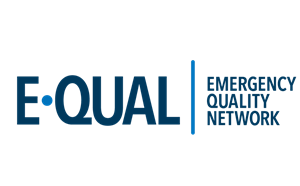
Emergency Care: One Patient … All Patients
Spring is rocked by a blizzard with nine more inches of snow here in Minnesota. It’s just six months since ACEP22, but the CEDR committee is in the midst of its work in the new year. So many juxtapositions! It is also a good time to reflect upon the opportunities and challenges ahead.
Emergency care is focused on one patient at a time. When a patient arrives with chest pain or trauma, we start immediately focusing on the particulars of that patient - symptoms, vital signs, history, exam, and so on. Often unconsciously, our focus broadens to groups of patients with similar symptoms to orient our clinical approach and decision-making. Voila! We have entered the world of quality measures. Then, when these groups of patients expand to an entire community, region, or country, our emergency care thinking is stretched to embrace whole populations … all patients. While it makes sense at one level, the realm of all patients is abstract for those of us who deal with whatever is coming through the triage door at any given moment on any given day.
So what do the Clinical Emergency Data Registry (CEDR) and the newly launched Emergency Medicine Data Institute (EMDI) have to do with these contrasting worlds of the one patient and all patients? CEDR serves as the data foundation to enable the building of EMDI, the house of aggregated data from the whole EM community and beyond. CEDR was initially developed to justify and support emergency physician reimbursement with the advent of Medicare’s Merit-Based Incentive Payment System. Since then, ACEP has been incrementally building this CMS-approved quality clinical data registry, the first of its kind, with emergency medicine-specific quality measures to support quality improvement in emergency care processes and outcomes over the past five years. During this time, the committee also recognized that the CEDR quality database needed to exist in a new, robust platform to analyze and transform the practice of emergency medicine - EMDI. The initial year’s engagement with our new technology partner, PA Consulting, has already produced a new CEDR dashboard, standardized the extraction of clinical and billing data from EHRs, and identified early clinical care uses for EMDI. In one sense, the strategic aim of EMDI is to conjoin the care needs of one patient to the understanding of all patients.
That said, CEDR participant groups face immediate challenges in 2023 with the double whammy of higher stakes for MIPS performance and the new E/M documentation and billing standards. The common wisdom is that excellent performance scores (> 75% threshold) will avoid a 9% Medicare physician services penalty as opposed to resulting in a 9% bonus. According to our ACEP federal liaison, one potential scenario could be up to one-third of ED groups with a penalty and a maximum predicted bonus in the range of 6%. The CEDR committee work groups are tackling the comprehensive review of quality measure data elements to synchronize with the new E/M documentation standards – we aim to communicate and educate our participant groups on strategizing this important transition. A substantial portion of CEDR participant groups are in the midst of a major transition from the prior technology vendor “pull” technology to the standardized “push” data extraction technology. This process raises understandable anxiety in this high-stakes year. CEDR leadership and staff are committed to supporting groups in navigating this data technology transition and reaching/exceeding the 2023 MIPS score threshold.
So, how can you and your ED group engage as you persevere in the trenches of daily practice facing the tri-epidemic of COVID, Flu, and RSV? Continue to fine-tune how you document your ED visits and understand your EHR so that CEDR, the foundation, has more and better data for the ongoing quality measures and reimbursement work at the individual and group level. EMDI, our new house, can use the aggregated data from all our participant ED groups for an initial set of applications, including reimbursement trends, clinical decision support, operational workflow, population surveillance, and overall emergency care system improvement.
I look forward to working with you and your group in this important year of anticipated growth and transition for CEDR and EMDI. Please reach out to me by any method-email, text, or phone - on any matter related to your engagement in CEDR.
Author(s)

Donald L. Lum, MD FACEP
Chair, ACEP CEDR Committee
 American College of Emergency Physicians
American College of Emergency Physicians

